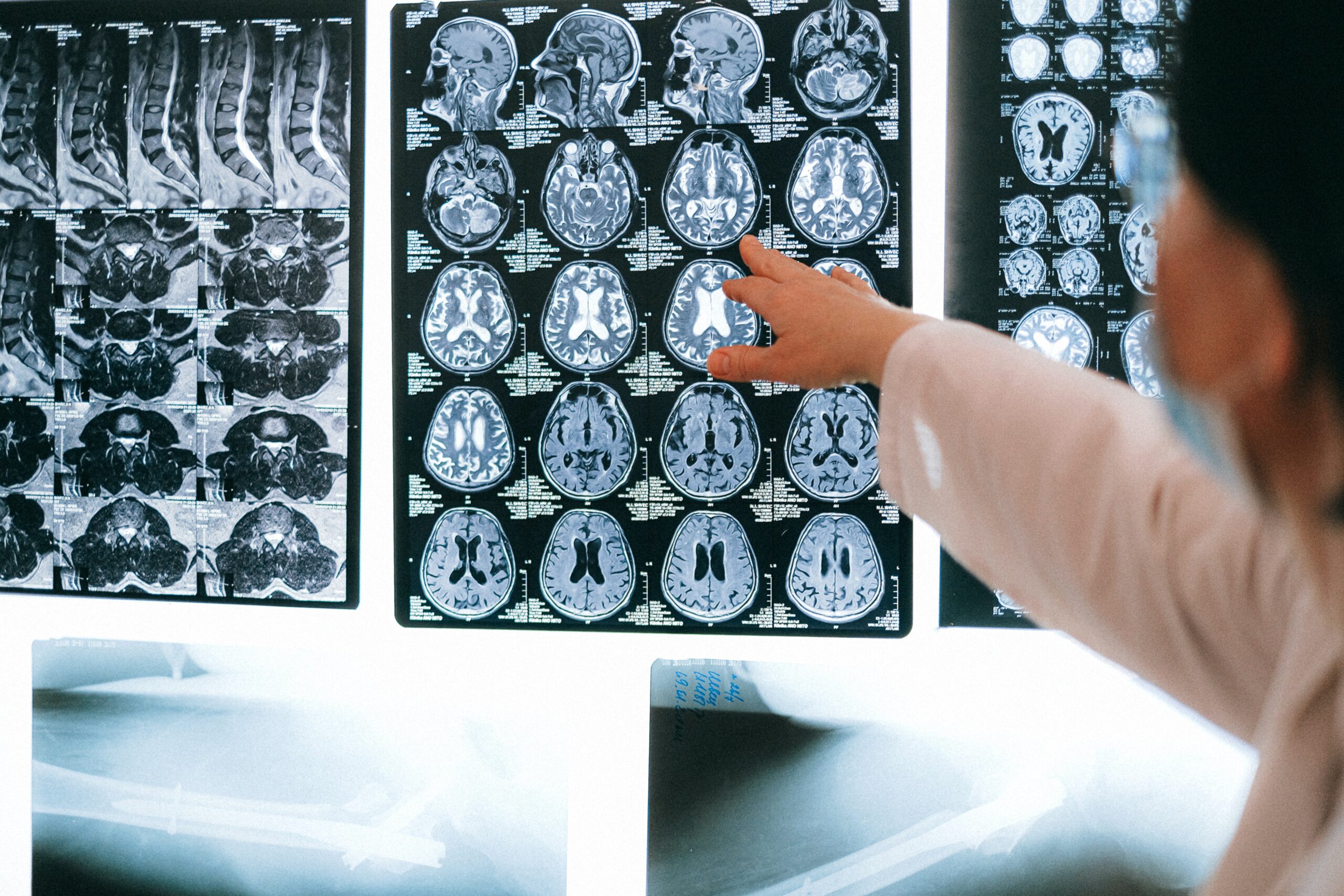How does epilepsy affect the brain?

Epilepsy is a disorder of the brain, so to understand the condition better, it is useful to know a little about the brain’s structure and the effect epilepsy can have on it.
The main symptom of epilepsy is seizures caused by sudden bursts of electrical energy that disrupt the brain’s normal electrical activity.
Not everyone experiences epilepsy in the same way. The symptoms experienced and severity of the condition can vary not just from one person to the next, but from one seizure to the next too.
How an epileptic seizure affects a person depends on where in the brain the seizure starts, whether it spreads to other parts of the brain, and which areas of the brain are affected.
The brain is divided into two hemispheres and each hemisphere has four lobes. The brain’s lobes are responsible for controlling different parts of our bodies. The four types of lobe are:
- Frontal lobe – voluntary movement or activity and cognitive functions.
- Parietal lobe – temperature, taste, touch, and spatial awareness.
- Occipital lobe – vision.
- Temporal lobe – memories and hearing.
The type of seizure that occurs and the symptoms experienced depends on where in the brain the seizure occurs.
Seizures that start in just one hemisphere of the brain are called focal seizures, whilst seizures that start in both hemispheres are called generalised seizures.
In this article, we will explore what is known about how epilepsy affects the brain.
What happens to the brain if someone has epilepsy?
Epilepsy is a neurological condition affecting the brain. The causes of epilepsy are far-ranging. The condition causes abnormal electrical activity in the brain which can occur for several different reasons, including:
- Structural abnormalities of the brain
- Genetics
- Brain inflammation
- An infection
- A physical injury
- Stroke
- Tumour
People with epilepsy experience abnormal brain activity which can cause seizures and involuntary or unusual movements or behaviour.
When the brain’s normal electrical activity is disrupted by a burst of electricity it can scramble the messages that the brain sends to other areas of the body, resulting in the wide range of symptoms caused by seizures.
How do epileptic seizures affect the brain?
Epileptic seizures are caused by sudden bursts of electricity in the brain.
Every epileptic seizure is different. Some seizures affect only a small part of the brain, whilst others can spread across the whole brain. Some seizures only last a matter of seconds, whilst others can last for many minutes.
Most seizures do not cause any significant, permanent damage to the brain, but recent studies have found that some do. More serious seizures may change the brain’s structure or affect a person’s cognitive functions.
You are more likely to experience problems with thinking after a seizure if you have focal seizures rather than generalised seizures.
Some people report having problems with their memory, language, or other cognitive functions after experiencing a seizure. This can happen when a seizure disrupts brain function or stops different areas of the brain from communicating with each other.
Some problems with cognitive ability that people report having after a seizure include:
- Problems remembering the names of objects.
- Problems organising thoughts.
- Personality changes.
- Problems with planning things.
- Problems with attention span.
A 2015 medical study titled ‘Cognitive impairment in Epilepsy: The role of network abnormalities’, summarised that ‘seizure-induced molecular and cellular changes that contribute to cognitive impairment are many and likely to be cumulative.’
Not everyone with epilepsy will experience damage to their brain or cognitive ability. Every case is different and whether any negative changes to the brain occur depends on the type of seizures experienced and the cause of epilepsy.
Does epilepsy cause any other problems in the brain?
Epilepsy can affect the brain differently from one person to the next. Those with very mild epilepsy may find that their seizures cause no significant or lasting damage to the brain.
In some cases, where epilepsy is more severe, or if a prolonged status epilepticus seizure occurs, it can cause permanent damage to the brain by killing off brain cells.
The same 2015 study into cognitive impairment and epilepsy that we mentioned earlier, also notes that people with epilepsy commonly experience many other health problems, which it notes ‘occur in people with epilepsy at a higher rate than would be expected by chance.’
The study states that ‘among the co-morbidities associated with epilepsy, cognitive abnormalities are among the most common and troublesome.’ Other co-morbidities common to epilepsy include mental health conditions and sleep disorders and migraines.
The long-term effect of epilepsy on the brain is still being researched, with a lot of questions unanswered.
According to an article on the Epilepsy Foundation website, one factor that makes it particularly difficult to determine the long-term effect of epileptic seizures on the brain is the fact that epilepsy is often caused by an injury to the brain. This makes it difficult for researchers to tell what damage was already present and what was caused by the seizures.
Friends and relatives of people with epilepsy can find out more about the symptoms of epilepsy and how to provide emergency first aid to a person having a seizure by enrolling on an Epilepsy Awareness course like the one that we run here at Care Business Associate Training.
Book a place on our epilepsy training course online or find out more information about the course by speaking to our team on 01772 816 922 or by emailing admin@cba-training.co.uk.